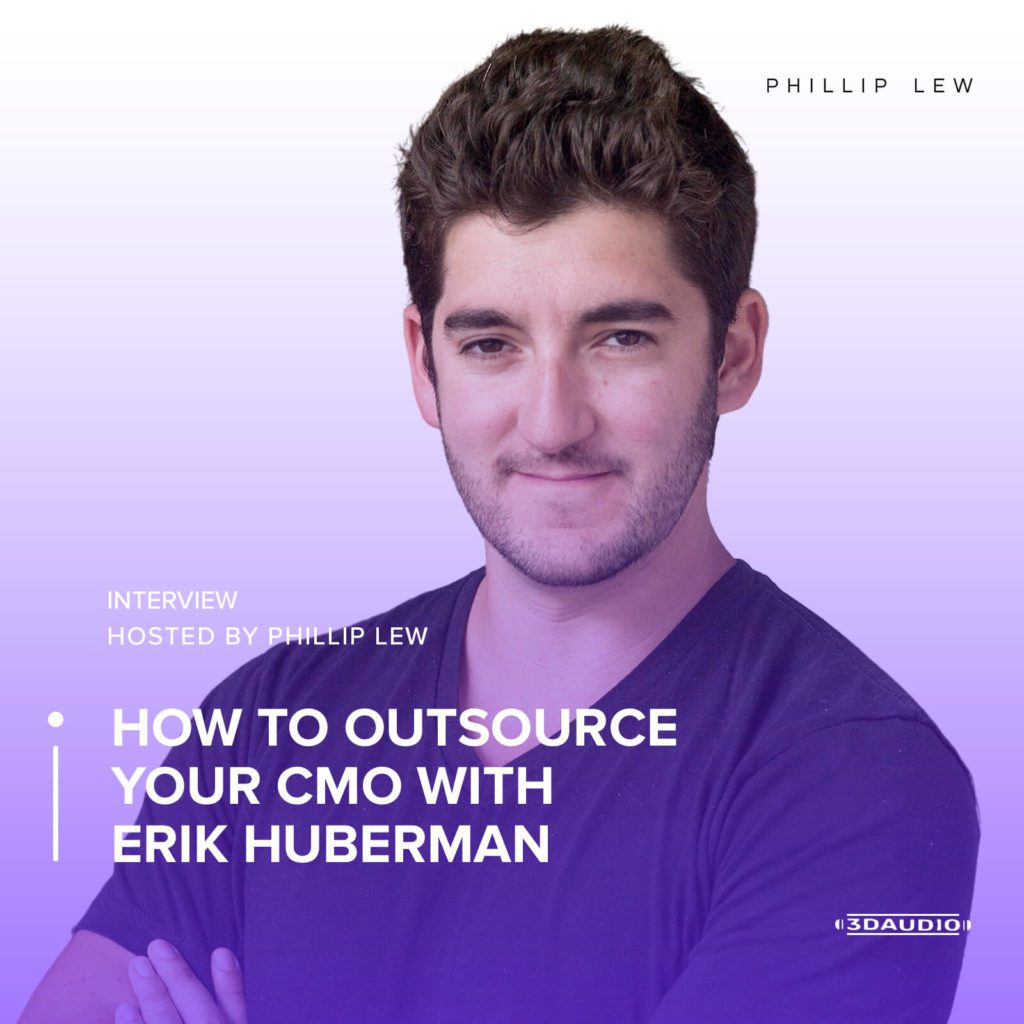
00:00
Paused.
Book Phillip to speak at your next event!
How to outsource your CMO with Erik Huberman
PHILLIP
Think about it. You’re the CEO of a company and you know there’s plenty of room to grow if you can just get your marketing to work. So you can either, A, hire a marketing expert and do it in-house, or B, outsource it to an agency that specializes in marketing. Which do you think is the smart way to go? Which do you think is more cost effective? And which do you think will be more beneficial to you and your company in the long run?
To help us solve this dilemma, I decided to invite the CEO of Hawke Media, one of the fastest growing companies in California, and a good friend of mine, Erik Huberman. Erik has been included in the Forbes 30 under 30. Influencive has named him the Top Influencer of 2017, and he’s been included in Inc. Magazine’s Top 25 influencers, and he’s a contributor to Forbes, Entrepreneur, and Business Insider. Let’s listen in as Erik shares with us how he got started in entrepreneurship, and what motivates him to succeed.
ERIK
My grandfather owned a scrap metal yard in East LA, he was a Polish immigrant. And my dad took over and then built it into a massive waste business and real estate development company and did very well. And so, from a very young age, when I’d tell my dad I wanted something, he -literally… At 8-years-old, I told my dad I wanted an electric guitar and his response to me was, “Good. Get a fucking job. Like, go figure it out. Good luck.”
And so it was, you know, that kind of, like… I forgot the term but, like, harsh love, so-to-speak. And he definitely pushed me, and so, literally, at 8-years-old I started buy…I tried selling lemonade. Didn’t make enough money, it was going to take too long. So then I started buying and selling Beanie Babies because I saw that there was some hype going around them. And as an, again, 8, 9-year-old, I made like 4 or 5 grand, ended up buying my electric guitar, buying a BMX, saving money for a car later. So kind of set me off from the beginning is liking, you know…
I thought that my…all through childhood, I thought I was going to be a musician and a guitarist. But when I realized I wasn’t that good at playing guitar, the realization kind of hit that like I really like growing things and being in business. I loved the inherent or fun of actually growing something and building something. It had nothing to do with the outcome. Like, it was cool that I could afford a BMX and a guitar, but it was actually the process is what I…and the journey that was what was fun to me, so that just kind of stuck with me. And throughout, I always was trying to come up with some harebrained idea.
Like, as a 8th grader when I was 13, I built a website…I taught myself how to build a website and built a music site to sell music equipment, called all the different distributors like Gibson and Ernie Ball and all these different guitar companies and told…pretended to be a woman because my voice hadn’t dropped yet. I got that from a friend a year older that was doing the same thing for electronics, pretending to be his own secretary, so I did the same thing. And just pretended I was a girl, and got them all to sign me up as a distributor, and then shit hit the fan when they all asked me to send in my Seller’s Permit number so that they could actually deliver the goods for me to sell. And I went to my dad and said, “Hey, can you sign this contract for me?” And he went, “What? No. What are you talking about?” Had no idea what I had been working on, so.
But again, so that got stopped. But then I tried to start something else in high school and like I was always doing it. And the couple times I tried to work for someone else, I hated it. Like, I worked at a health food store for almost a year in my hometown, and six months in, I hadn’t gotten a raise. Found that I was training someone making 25% more than I was. So I went to the GM to ask him what’s going on and why this was the case. Turns out that my manager… So I talked to the GM…my direct manager was taking credit for all my work and not…and reporting to the GM that I was doing nothing. So, politics came into play in a very big way. Again, if you think about it, like the manager of the health food store in a 7000-person town, it wasn’t like some high, ambitious person that was trying to take care of the people around him. He was just a guy trying to make his paycheck. So, I realized I liked to own my own destiny, which you know, all that in is how it led me to entrepreneurship.
PHILLIP
ERIK
And then really the X-factor and how successful you are just comes down to timing. And so the idea is another lesson I’ve been given is if you just keep swinging the bat, you’re bound to hit something. Now, how far you’re going to go with it? Again, timing. Like, I’m… Hawke Media has done very well because I happened to get into e-commerce early. I happened to sell a couple of companies and build a lot of credibility. Happened to be one of the only people in LA that had sold companies, e-commerce that was now willing to run an agency to service the other guys that were trying to do it at a time when companies realized, “Oh, we really need to pivot to this.”
So, like…and I actually think this whole COVID thing is going to be another kind of, you know, tipping point for our business because now there is no debate. The market share of e-commerce has gone up from 13% to 30% in 2 months in terms of brick and mortar to e-commerce. And so, those kind of things, it’s all timing. Like, but I worked hard, and I was smart enough to even start into solve problems along the way. But again, the biggest thing I’ve seen is like billionaires, there’s nothing special about most of them. There’s some brilliant ones out there, and there’s mostly, are just really lucky, and they went for it.
And so, for anyone, the difference that I had that I was given is, I was taught from a very young age just to go for it. But if you want to do it now, you just got to convince yourself because everybody’s got the opportunity to.
PHILLIP
ERIK
PHILLIP
ERIK
Like, the ecosystem in marketing is really difficult because what we found is, most companies, most founders have 2 options: you hire a team in-house or you hire an agency. And when you try to hire someone in-house, it’s really hard to attract the best talent out there. They’re few and far between good marketers that can manage good marketers and build a team for you, hard to find. They’re really expensive, so they’re hard to afford. And then even if you actually accomplish building an in-house, you’re working in a vacuum, you don’t have the relationships with all the platforms, you cannot compete with an agency’s ability from seeing the forest from the trees, to having the relationships in the ecosystem, to watching all the new innovations are coming out. It’s really hard to do that yourself, which is why almost every major company uses agencies.
But the problem with agencies is 99% of them have no idea what they’re doing, and the few that are any good tend to get really expensive, want long contracts, high minimum, something that makes them hard to work with. And so, the end result is, if you’re not a Fortune 100 or a super sexy startup, you just don’t get access to great marketing. And so, you know…in terms of the CMO part of it.
And so what we decided to do was build a team. Basically, what we do is we have all these different expertise from a fractional CMO to a Facebook marketer, email marketer, web designer, etc., and everything we do in à la carte, everything’s month to month. The idea is, it’s a very easy way to be…to get access to a marketing team that’s really good at what they do, that’s top notch, and it’s flexible and nimble as the company needs it.
And so, on the CMO apart, my just experience was, most companies can’t afford a really good CMO and they’re hard to find. And they’re, you know, that’s kind of a crapshoot. And so we wanted to build a team of people that can work fractionally to at least make sure companies are running in the right direction using, you know…and we hire and train and manage really talented marketers that are all collaborating, working together, so you know you’re getting something way better than you could ever do in-house, and again, for a fraction of the price you’d have to hire a mediocre CMO for.
PHILLIP
ERIK
The only thing…reason I got hired, thankfully, was I had built and sold two e-commerce companies. But any new agency, I’m always baffled by the company that wants to be their first guinea pig. It’s like, this is your business. This should be like all that matters… I mean, obviously, not all that matters, but a big part of what matters to you, and you’re going to go hire some, like, nobody to drive the growth of your business. Like, it’s just you’ve got to be careful with the decisions you make on that, and really hire the best because a lot of times, you can hire the best. And a lot of people settle.
They, you know, we deal with it all the time where they’re like, “You’re less expensive. You guys have a way better track record. You seem to know what you’re doing, but these guys are really young and down the street and they seem like they pay more attention to us. So, like, we’re going to go with this company, this…literally happened, in Grand Rapids, Michigan.” And then two months later, they call us and go, “They just put $250,000 of our money. We don’t know how we’re going to get through this. Can you help?? And it happens all the time.
So part of it is founders need to be smarter. Founders need to actually make good decisions here because it’s on them too, again. I don’t believe in victims here. And in hiring some random agency where…find out if they’ve ever grown a business. I don’t want to hear about their return on AdSpend for Facebook. Like, great, that’s nice. What did that actually do for the business? Because those numbers are so easy to mess with, and so easy to fudge, and it’s so easy to grab a one-day window on that return or whatever it… You know, so many different ways to look at those kind of, like, metrics. Tell me about the growth of the business. How long did they work with you? Have they been with you for two years? And what was your growth pattern in those years, and what was your profitability? And those kind of things, like, “Did you actually help them grow their business, or did you just spend money on Facebook and show a great metric on an Excel file?”
PHILLIP
ERIK
Like, are you going to be…build your own law firm, too? Are you going to build your own accounting firm too? Like, where does this stop? That you’re trying to build… because you’re not going to compete with us, like, that’s at the end of day, like we have a full-time team at Google, a full-time team at TikTok, a full-time team at Klaviyo, a full time-team at Facebook. Like, the list goes on where like our ability to work collaboratively with the platform is because they take us seriously because of the amount we’re spending across all our clients, and the view of what we have in terms of the ecosystem, like what’s working and not, you can’t compete with us on just like a head-to-head level.
Now, that doesn’t mean that certain aspects of your marketing shouldn’t be-in house, including your head of marketing. Like, when I say the outsourced CMO, I’m talking about small businesses, but at some point, our outsourced CMOs become advisors to the internal CMO to bring that forest from the trees view, but having internal strategy is critically important. Certain things definitely make sense in-house. Advertising, almost never. Your media buying, almost never makes sense in-house, unless you’re lucky enough to find that diamond in the rough that wants to work for you that isn’t a, you know, genius media buyer. And frankly, their shelf life is usually a year before things change on the platform and they don’t know what happened because, again, they don’t have that direct relationship. It’s really hard to find.
So it’s usually more of a hybrid and be pragmatic about it. Don’t be emotional about it. Like we just need to build an all in house to like feel better, which is a common…I hear pretty regularly that it’s like, we’ve done this… We’ve worked with 2500 brands in 6 and a half years. I’ve watched the results of all of this. I’ve watched many companies, including one I’m dealing with right now that we took from $3 to $130 million in revenue, and then completely fell off a cliff because they got that far and decided to try to do it themselves. So, it’s just a…it’s a thing that you have to watch for that like, you just have to be, again, pragmatic. Really look at both sides of that argument and decide what’s best for you. There are companies that have done very well building their own marketing teams, to an extent.
PHILLIP
ERIK
And they just said they’re going to do…they decided to take it in-house and try to manage it themselves because they want to cut the $2,000 of spending with us, and they think they can teach their team to do it. They don’t have a good person to do it. They’re just going to try to teach their teams to take over for us. They’ve spent years trying to get here to make an extra 10 grand of what they were, so now they’re going to cut 2 grand where we just got them an extra 10. It’s like that kind of fallacy and logic that is like, “You realize the opportunity cost you’re about to give up here, because you’re not going to keep up with this.” It will probably work for the next 3 to 6 months, because usually, marketing doesn’t die overnight. But in six months, you’re going to be trying to figure out why you can’t get your shit together. And this is what happens over and over again.
So it’s not like this is a microcosm of our business. Most of our clients stick around. But these are the kind of things that we do lose business for that we’re like, “What are you doing?” because we don’t try to hang on to business that we don’t do a good job for. But when we’re crushing it for someone and they fire us like, you’re, kind of an idiot.
PHILLIP
ERIK
And I just, you know, I took a stance on it and said, “You know, my view is, there’s details in here that can be debated, but the overall movement of being anti-racist and to be a stand up against that is racist and like, ‘No, I’m not…’ Like, I have no patience for that.” Anyone that’s… If we, you know, we posted a lot of stuff about it. We shared, we donated, we’ve really…and we’ve supported, you know, a lot of different initiatives around it for years. It’s nothing new for us. And, you know, with this whole situation, they asked, “Well, you know, we saw that you did Black Tuesday, and you put that up. And, you know, apparently a lot of companies are getting…losing customers for that.” I’m like, honestly, if any customer comes to me and goes, “You know, I can’t believe you supported this. I’m no longer your customer,” they’re racist, and they can go fuck themselves.
Like, again, the moral obligation you have to your employees, to your community stands, I think, beyond your own, you know, the sort of details and as far as profitability, and you’ve seen that with a lot of very responsible companies. I mean, Nike’s done a great job for a few years now. And for us, you know, I listen to my people. Like, we have, you know, pretty diverse workforce, and I was like, “How do we need to respond to this, and how do we need to do that?” And why I’m using this as an example is it’s just very relevant in terms of, like, the morality of like, I’m not here…
And like if I wanted to make a profit decision, keeping my mouth shut was probably the best thing to do because I’m sure we have conservative clients that probably want to hire us. We’ve worked with, you know, different companies that are in places that are hyper conservative, but I don’t care. I mean, I’d rather run a company I’m proud of than run a company that profits just a little bit more. So, I think that’s the part is like, how can you make your…the world better while also making money?
PHILLIP
ERIK
Advertising builds awareness, word of mouth builds awareness, PR and press can build awareness. There’s a lot of different ways to do that. But you have to be filling that top of the funnel, so to speak, in building awareness that you even exist. What a lot of people miss is, most people don’t go from awareness to customer. There’s a period in there called a purchase cycle or a consideration period where they’ve been introduced to you, but they’re not ready to buy yet. And so, implementing different practices that we call nurturing, whether it’s email marketing and staying in touch with someone, SMS marketing, retargeting and banner retargeting, creating content that engages them while they’re trying to make that decision, all sorts of ways to do that, to make sure that you both shorten that purchase cycle and consideration period, and also increase the likelihood to convert by building trust, which is the third pillar of trust being third party validation that your company is actually legitimate, that you’re going to buy it and you’re going to feel good about it, whether it’s reviews, again, word of mouth helps. It could be testimonials, press.
And then over time, it’s what most people call brand, like Coca-Cola, I don’t need you to tell me what’s going to happen when I buy a Coca-Cola. If I buy a Coca-Cola in Egypt, I know what I’m getting, and so…hopefully. And so, the idea that it’s…that’s…that…once you create a brand and a significant brand, that trust becomes inherent trust because the consistency that you create is a business, that I know I’m…what I’m going to get because you’re known for it because I know you, etc. And so, those three pieces, whenever we’re analyzing a marketing strategy and trying to figure out where we’re missing something, it’s about looking at those three and constantly improving all three, but also that can help you figure out what you’re missing, especially when you have a kind of a global view of what other companies are doing like we do, we can look at an individual brand and go, “Oh, well, their conversion rate’s way lower than it should be, so we should focus on nurturing.” That kind of thing.
PHILLIP
ERIK
Is every young person on Facebook? No, they never were, just like every old person isn’t on TikTok. And every old person isn’t on Facebook, but the people that are on Facebook, you can target, let that fit your demo. So that’s not an issue. So, context is the issue and why Facebook and Instagram have performed so well is Facebook is a platform…and Instagram. Basically, most people sitting on it are just bored, scrolling through their newsfeed doing nothing else. And so, when you serve an advertisement, again, to the right demo and the right type of person that tends to have a propensity to buy your product with a copy and creative that you’ve hopefully tested, so that you know that’s the right type of copy and creative to convert that customer, then you…you’re getting them at a time when they’re basically saying, “I’m bored. Show me something cool.” Show them something cool, and you should have a chance of getting them as a customer. That’s why Facebook and Instagram works so well for marketing.
The one part that it’s missing, though, is there’s not a timing side to it. So where Google, which is the other powerhouse now…wins is if I…if I get a DUI and I need a DUI attorney, Facebook, you’re going to…you can’t really target someone’s interest base and assume they’re going to get a DUI and time that right. That’s going to be really tough. But on Google, I’m going to search “DUI attorney,” you want to show up if you’re a DUI attorney. So that’s a…that’s a tough one. And so, that’s…that’s what you have to think about when you’re creating these ads.
Similarly, YouTube, YouTube, I think is a terrible advertising platform unless you’re just going for branding that annoys people, you’re interrupting something they’re trying to do. They’re trying to watch a specific video. People don’t use YouTube and just turn it on and let it scroll. Like, they’re actually actively trying to watch something and you’re interrupting. I think it’s a terrible ad platform, and we see the performance isn’t there because of it. And, you know, a lot of CMOs have been convinced that they need to advertise on YouTube, but generally, it’s not a good place.
The only thing we see powerful on YouTube are children’s toys and things that you’re targeting kids because it’s one of the only places that it’s easy to target kids on. So the same…with TikTok, similarly, the way TikTok’s interface is you’re just scrolling through ridiculous videos, and so advertising, I think, is going to actually become very…that’s why we have a partnership with TikTok. I think it’s going to become very powerful.
Snapchat still hasn’t quite figured it out because Snapchat’s still use a lot for one-on-one communication, so you’re interrupting when you’re advertising. Twitter, same thing. Nobody sits there and scrolls through their newsfeed. So your…their ads kind of get lost, which is why they haven’t competed as well, too.
PHILLIP
ERIK
PHILLIP
ERIK
Like, my…and a quick story again with a dad that’s an entrepreneur. When we first started, we were like a few months into business…or two months into business. One of my first hires was managing half my clients. And on a Monday morning, I got an email, like 3 a.m. that said, “Hey, Erik. Long story short. I met a girl, fell in love, asked her where in the world she wanted to go. She said Hawaii. We’re here now. I’ll be working remotely.” As a company that did not do remote work. And so, I couldn’t get a hold of him because it’s Hawaii and it’s three hours earlier. Finally, got a hold of him in the afternoon and he was like, “Yeah, no, I’ll be handling your…” and like, just…and I knew I couldn’t yell at him because he was sensitive. So I was like, “Hey, just make sure you handle anything. Have fun, but like, don’t let down our clients. Like, I need you to be responsible.” He’s like, “Yeah, of course. I got it.”
Of course, the next day, I get a call from every one of his clients saying, “What the hell are we paying you for? This guy’s not even answering his emails. He hasn’t done anything he said he was going to do,” blah, blah, blah. You know, all hell broke loose. Tried to get a hold of him, can’t, can’t, can’t. Finally calls me back and I’m like, “Yo, what the hell were you doing?” He goes, “Erik, I’m going to stop you right there right now. The happiest day of my life. I’m getting married today, and I just need you to respect that,” and hangs up on me.
So, you know, I thankfully had a good business partner. He jumped in, we fixed the clients, but this guy just put me off. I called my dad as I’m leaving the office just to like vent and be like, “God, this guy just… I don’t know what’s going to happen. Like, our clients are pissed. You know, I just signed this lease to our first office. Like, I don’t know how we’re going to deal with this.” And my dad listened to it, and I went on for like five minutes. I’m rushing through it now. And he listens and he goes, “Yeah, okay, well, yeah, that shit happens all the time. Anyways, I’ve got to run. I’ll talk to you later.” Click.
And like the best, unintentional advice I’ve ever had, which is like, yeah, that shit happens all the time and that’s it. Like, get over it. And so, same thing. Frankly, from a business standpoint with COVID, it’s always going to be something for… Apple’s the biggest company in the world, and they’re dealing with trade tariffs with China and COVID, and now, what was it…? Oh, they’re dealing with antitrust. And like CNBC was on today talking about how, because the App Store app, you know, mobile developers, they’re dealing with, you know, a duopoly between Google and Apple and it needs to be broken up like they’re doing… Tim Cook is running the biggest company in the world and he’s dealing with bullshit on a daily basis. It doesn’t go away, get over it and get used to it. That’s the best advice I can give because once you do, then you can enjoy it.
PHILLIP
ERIK
Like, and people…like, majority of people from my experience have a really hard time just executing, just doing things. It’s always a discussion. It’s always a planning session. It’s not just…just do it. Just move on. Let’s go.
PHILLIP
ERIK
And like, what’s that like… And when I hit 25, it was like almost a depression and disappointment that I hadn’t bought a piece of real estate by 25. And looking back, it’s like it didn’t mean anything, but I made it mean something. So instead, like having general ideas of where you want to go and goals, but…and driving forward, but not putting that kind of pressure on yourself, I think is helpful.
PHILLIP
ERIK
Like the people that run and hide are the ones that suffer in something like this. The people that went aggressively out and acted like a true entrepreneur, like, own the title and figured out how to solve these problems, that…those are the people that are succeeding. And I say this because I hope that somewhere in the listeners, I encourage someone to get off their ass and do it. I really am sorry that people have been hit so hard by this and I really feel for it, but I also don’t want the individual to give themselves that excuse. Well, like, you know, it’s the victim complex. Like, “Well, this happened to me, so I guess there’s nothing I can do.” The answer is there’s always something you can do.
PHILLIP
There you have it, the harsh truth, but the truth, nonetheless. It doesn’t matter if it’s COVID-19, a recession, a factory burning down, or anything else. Get over yourself and figure it out. Never underestimate the power of your own resourcefulness and creativity. So, if you’re a CEO, business owner, e-commerce entrepreneur, executive, and you want to get access to great marketing, marketing that actually gets results, results that translate to extra zeros in your bottom line, then check out Erik Huberman at hawkemedia.com.
Thanks for listening to this episode of Innovators, where your future is now. My name is Phillip Lew, your host. And thanks for listening as we bring you, the listener, on a journey from panic to power.
OTHER PODCAST EPISODES WE THINK YOU’LL LOVE

About Phillip lew
Phillip Lew is the host of Innovators, a podcast audio experience that decodes the mysteries of exponential technology and the coming singularity. Phillip Lew is also the CEO of C9 Staff—the #1 firm specializing in deploying remote staffing teams for clients across 9 core industries.



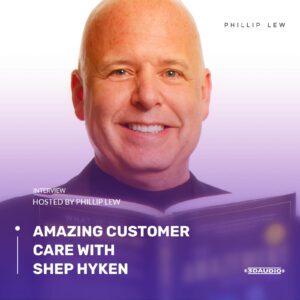
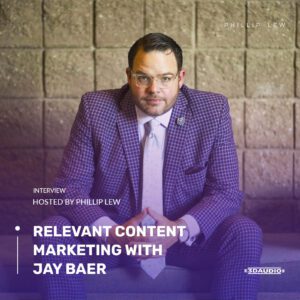







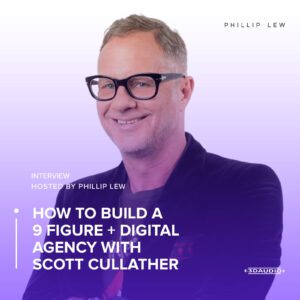

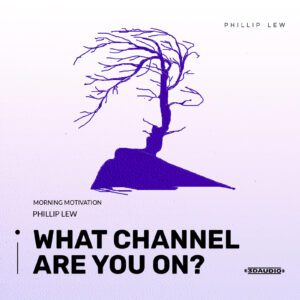
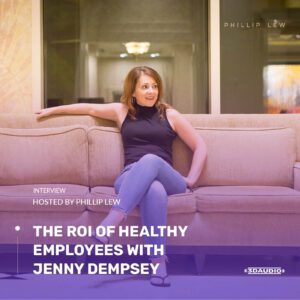
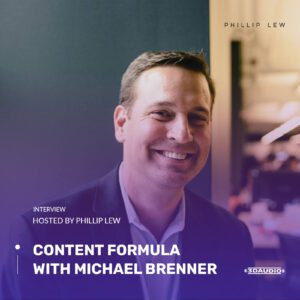
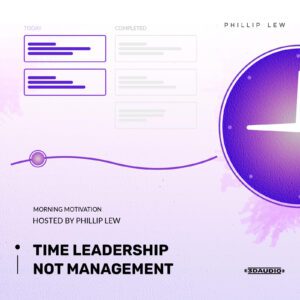
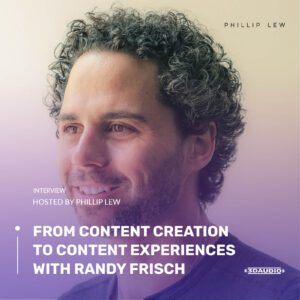
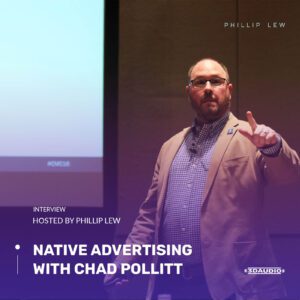


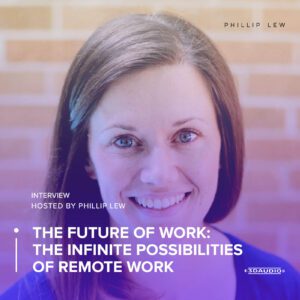
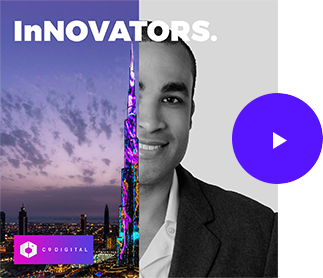
0 Comments